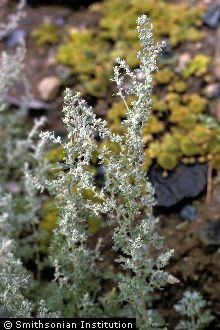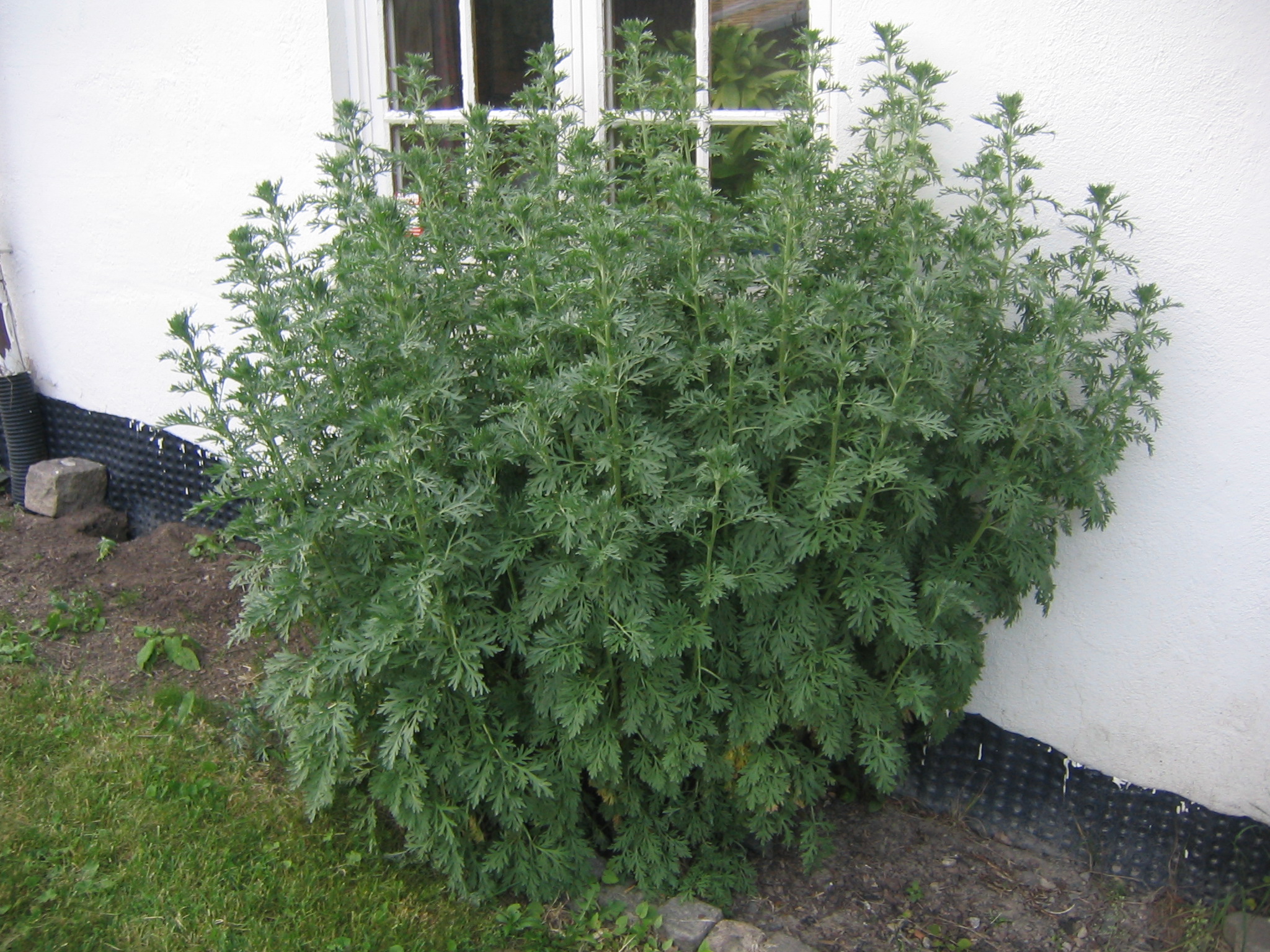Introduction | History | Control | References
History
Absinth wormwood is native to Europe and was introduced to North America in the 19th century. It has spread rapidly in the pastures and rangelands of North Dakota and other states in the Midwest. The plant causes economic losses by reducing available forage, tainting the milk of cattle that graze it, reducing biodiversity by out-competing other forbs, and medically as a pollen source for allergies and asthma. Absinth wormwood can spread by seeds or short roots. The plant is most often found on dry soils, in overgrazed pasture and rangeland, wastelands, and roadsides. Absinth wormwood was added to the North Dakota noxious weed list in 1971. By 1973, the plant had infested 42 of 53 counties in North Dakota. Currently, it is found extensively throughout North Dakota and has been reported in all counties.
 |
 |
 |
Absinth Wormwood |
Areas of North America Infested |
Flowers of Absinth Wormwood |
 Absinth Wormwood
Absinth Wormwood